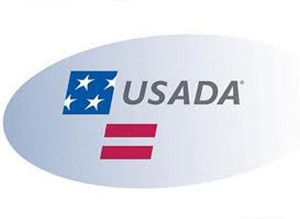Texan could have retained five of seven Tour titles
 The lifetime ban imposed by the US Anti Doping Agency on Lance Armstrong could yet be reduced, states USADA’s CEO Travis Tygart, providing the Texan testifies truthfully about his time in the sport.
The lifetime ban imposed by the US Anti Doping Agency on Lance Armstrong could yet be reduced, states USADA’s CEO Travis Tygart, providing the Texan testifies truthfully about his time in the sport.
Tygart said the sentence would have been different “if he would have been truthful and willing to meet to help the sport move forward for the good,” he told USA Today. “Of course, this is still possible and we always remain open, because while the truth hurts, ultimately, from what we have seen in these types of cases, acknowledging the truth is the best way forward.”
Last week Armstrong indicated that he would no longer fight USADA’s charges against him. He was officially charged with a range of doping offences on June 29th and tried to overturn that disciplinary action in the federal courts.
The judge in that case ruled that the arbitration and appeals processes were sufficiently robust to protect Armstrong’s rights of due process, and said it was beyond the jurisdiction of his court to interfere.
USADA has indicated that it will increase the evidence over time; some is thought to be due shortly, while other parts of the evidence will likely have to wait until after the arbitration processes of Johan Bruyneel, Pedro Celaya and Pepe Marti.
The full range of evidence is therefore not yet known, but it includes witness testimony of former team-mates who originally testified under oath to federal agents.
Tygart has said that Armstrong was given the opportunity to meet with USADA, but refused. He says now that had he done so, he could have held onto five of his seven Tour titles.
If Armstrong had “come in and been truthful, then the evidence might have been that the statute (of limitations) should apply, that would have been fine by us,” he said. Normally the statute of limitations is eight years but when an ongoing cover-up is involved, that can be waived under USADA rules. The precedent for this was set earlier this year in the doping case of Eddy Hellebuyuck, a track and field athlete.
Armstrong testified under oath during the SCA Promotions case, which ran between 2004 and 2006. He denied doping then.
The UCI and WADA have said they are both awaiting details from USADA about the reasons for its sanction; it is expected this will also include details of the evidence gathered.
Both have the right to appeal the sanction to CAS. “Unless and until it is appealed and overturned, then under the world rules, it must be imposed,” said Tygart.
He said that USADA had received critical emails and also threats after the decision, but also “an outpouring of support” from current and former athletes at all levels. He previously said that another witness came forward last week after USADA made its ruling.
Meanwhile the Australian official and UCI arbitration tribunal member Phill Bates has criticised USADA. “If USADA believes Armstrong has a case to answer, the ultimate judge should be the UCI, not a publicity-seeking chief executive hellbent on a witch-hunt to chop down the tallest poppy in our sport.”
It is not known if he is speaking in a personal capacity only or if his views represent those of the UCI. It previously sought to block USADA’s action. As a result its president Pat McQuaid was warned by WADA director general David Howman that he was hurting the cycling body’s credibility.
“By adopting its current position UCI is sadly destroying the credibility it has slowly been regaining in the past years in the fight against doping,” he warned.